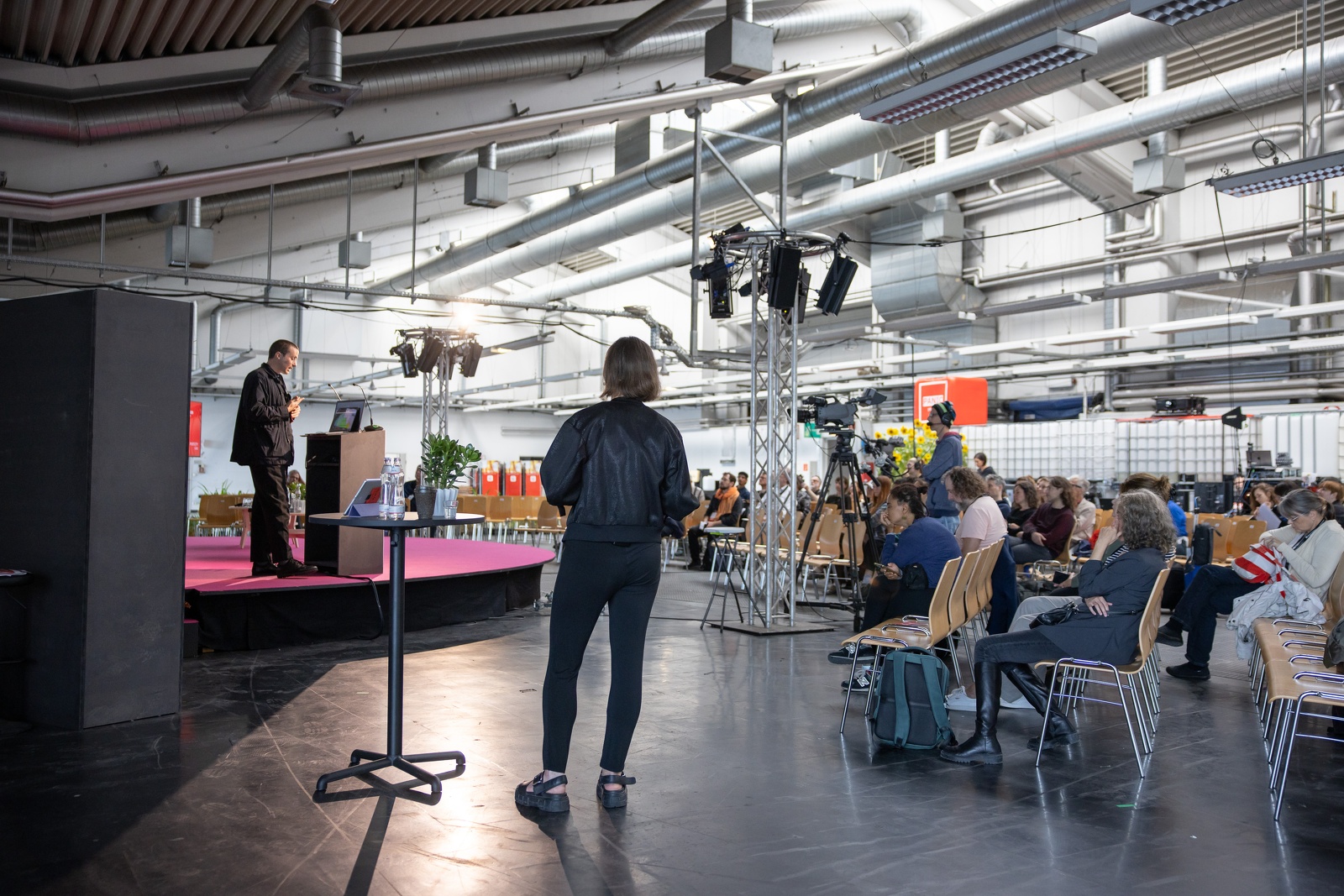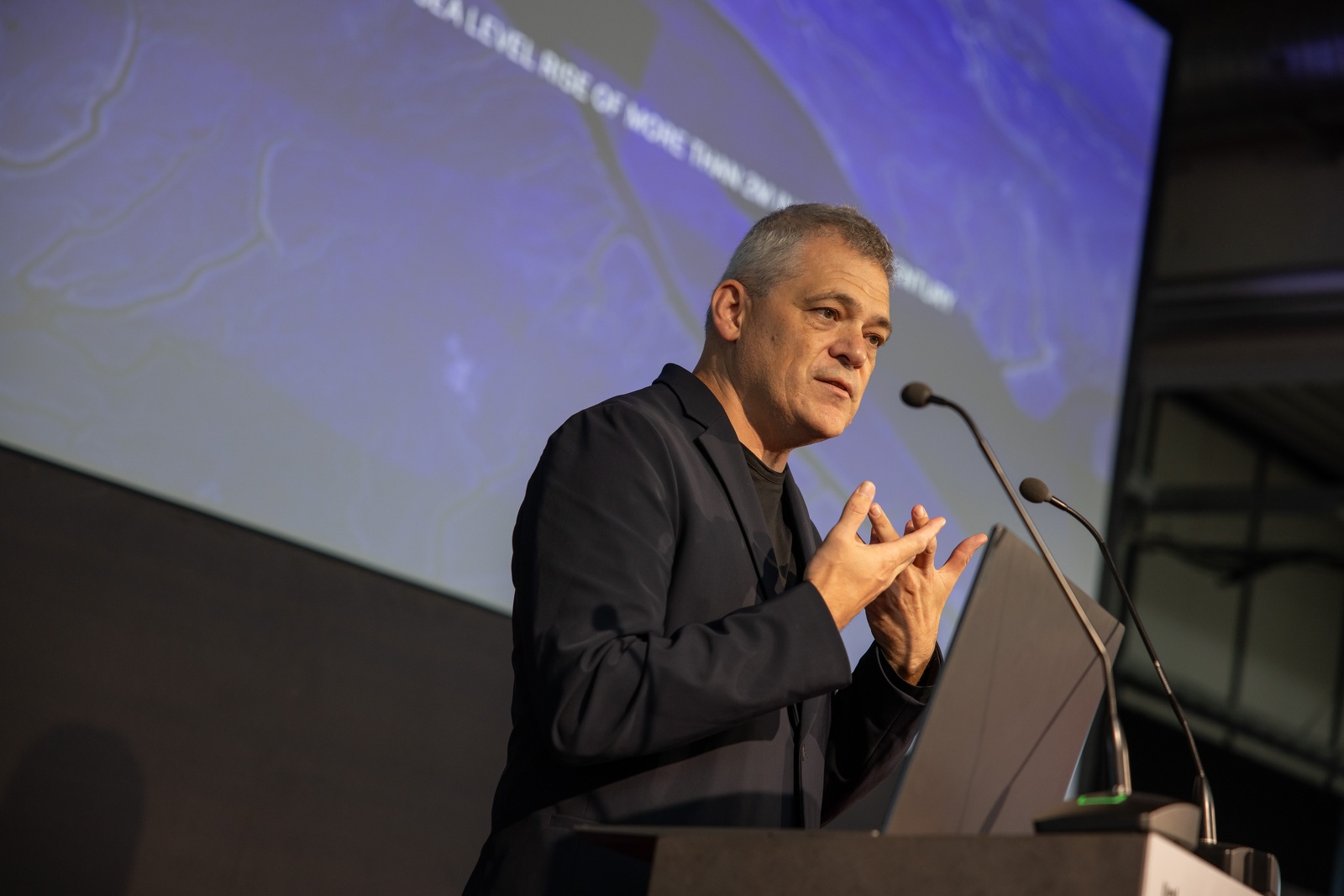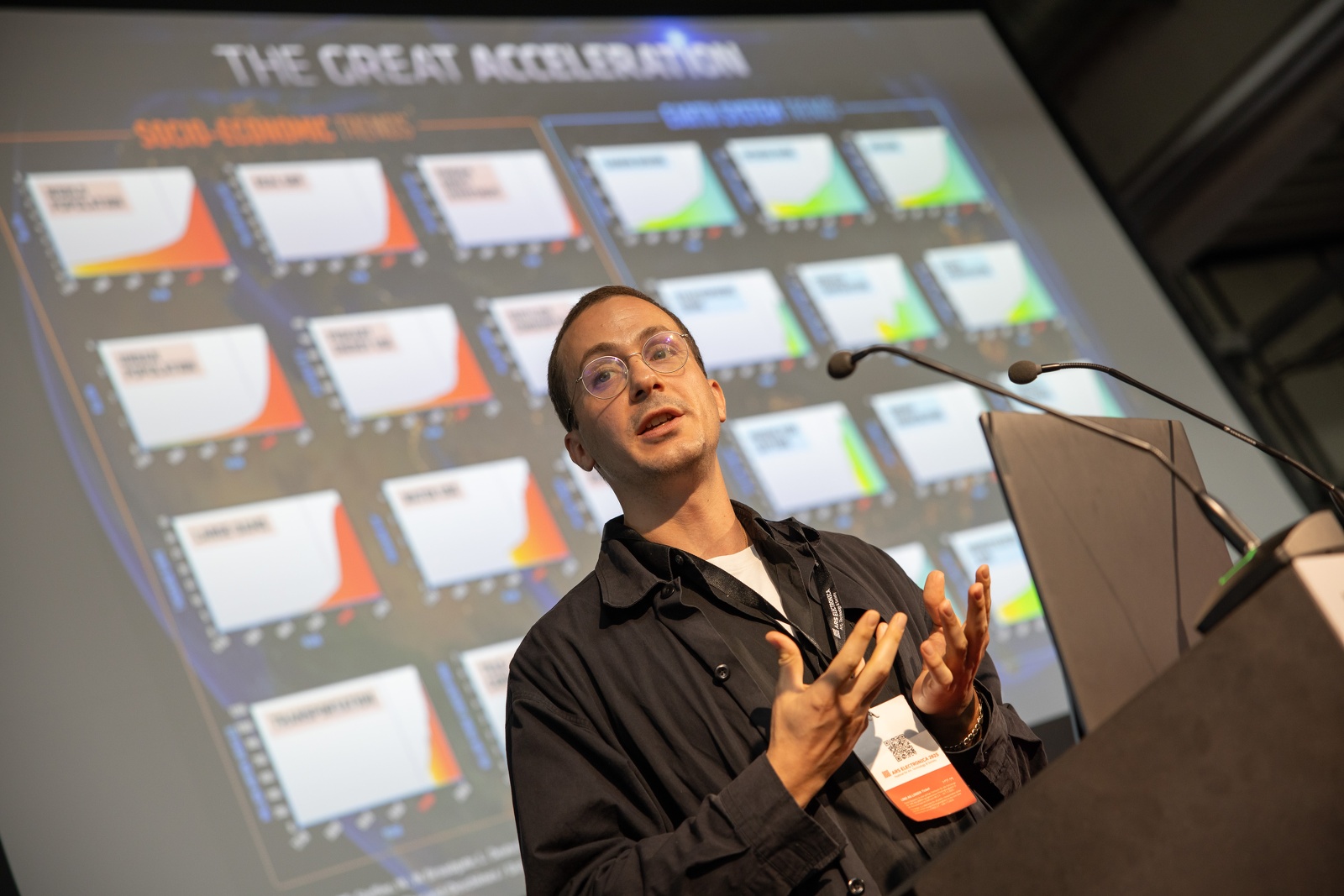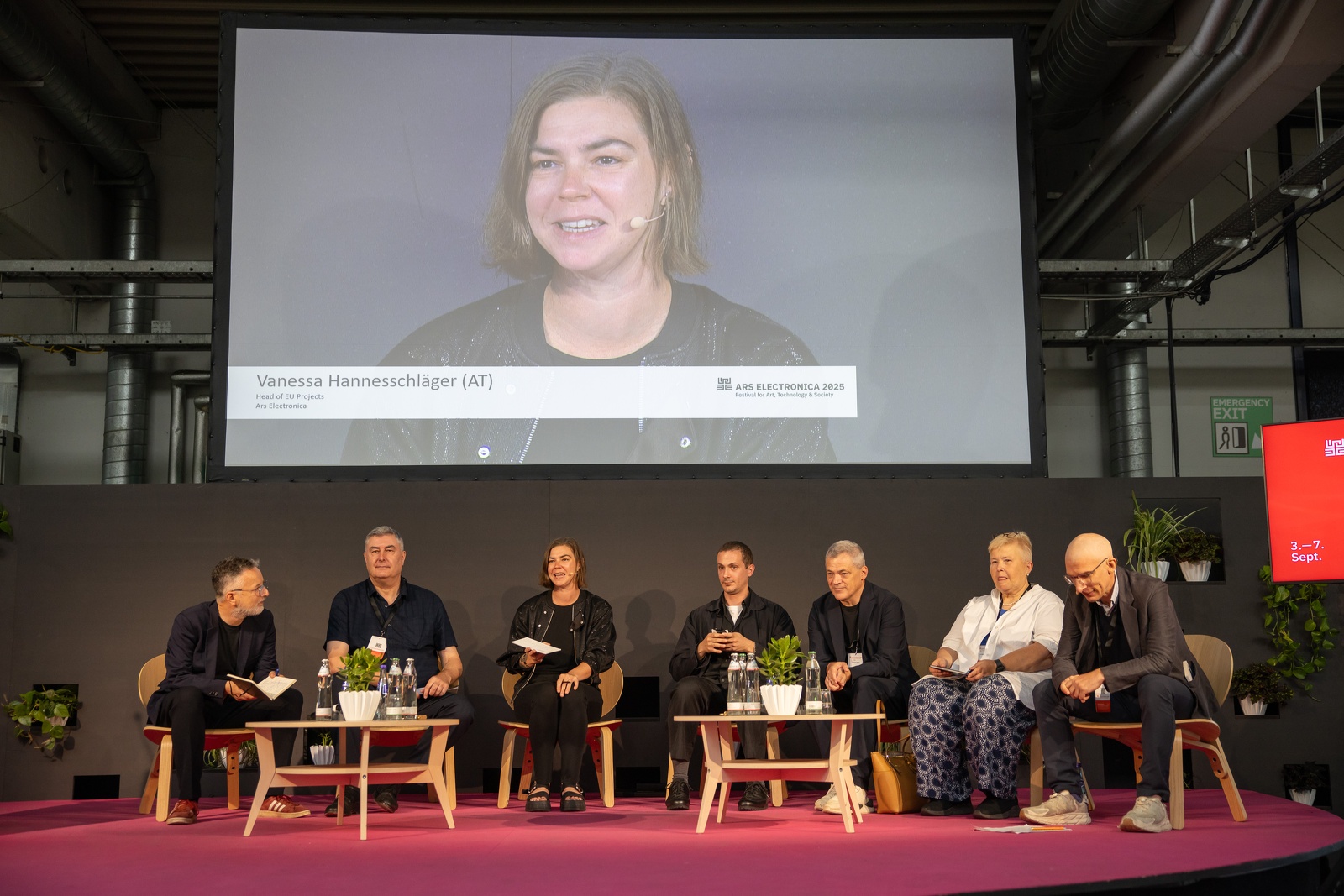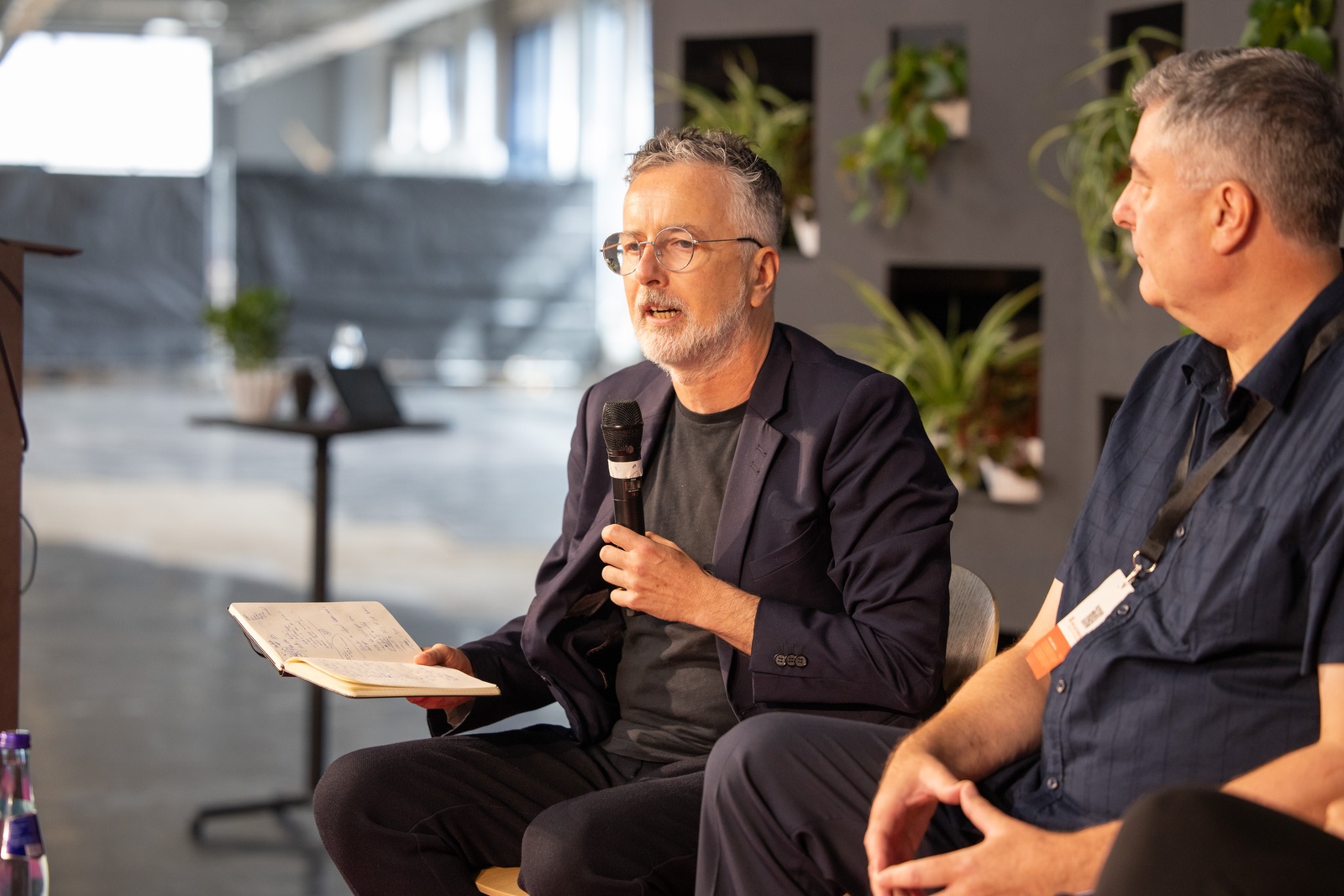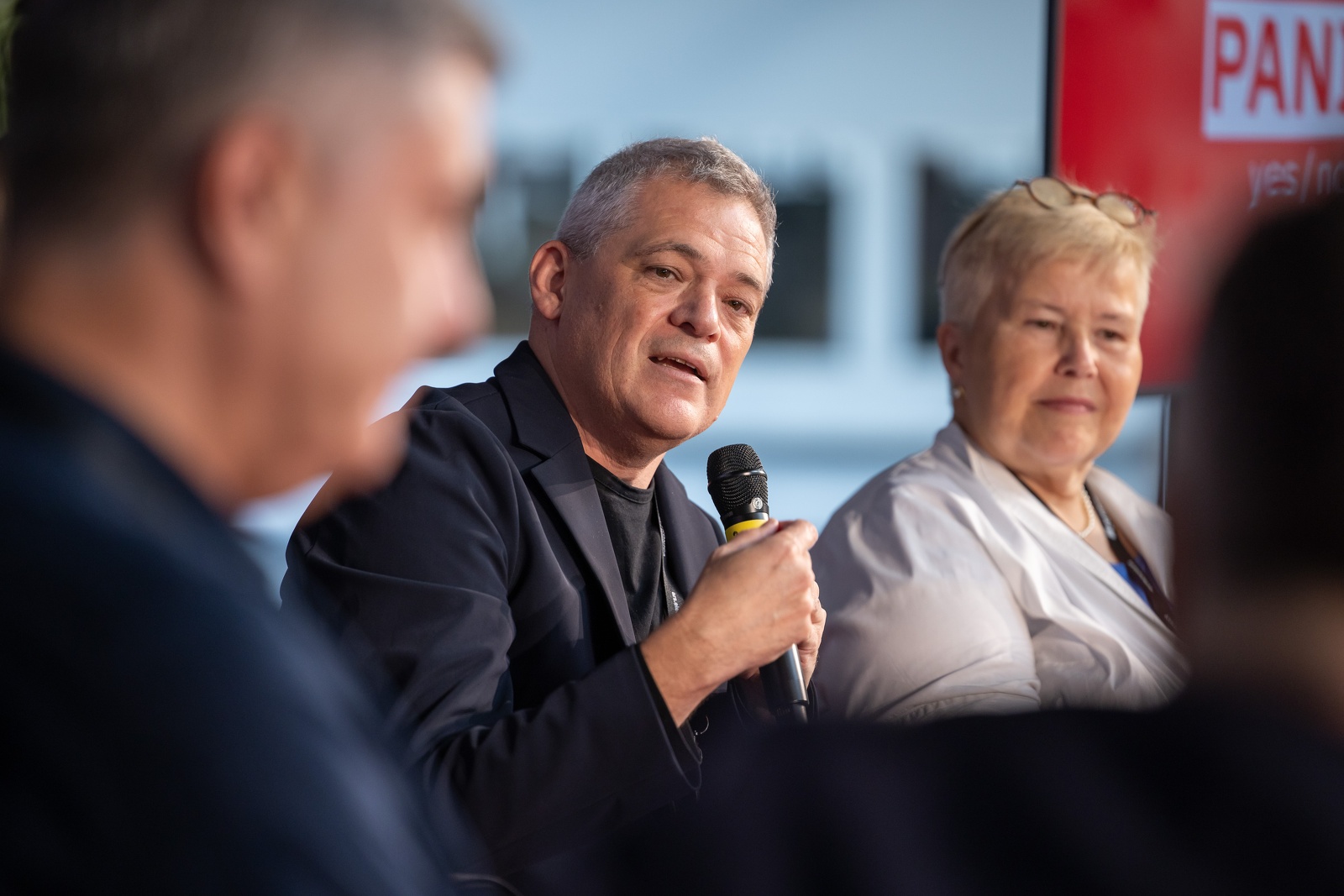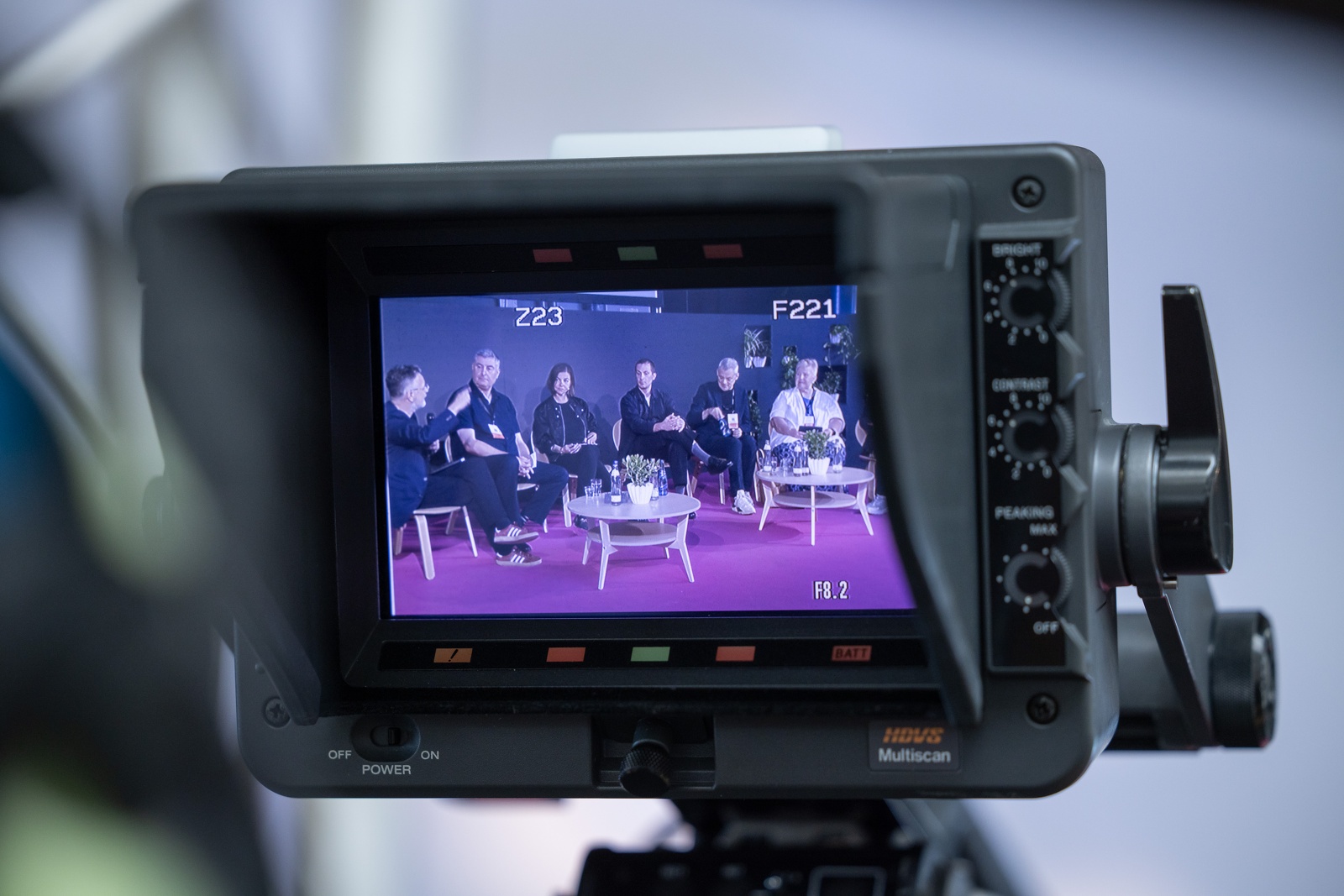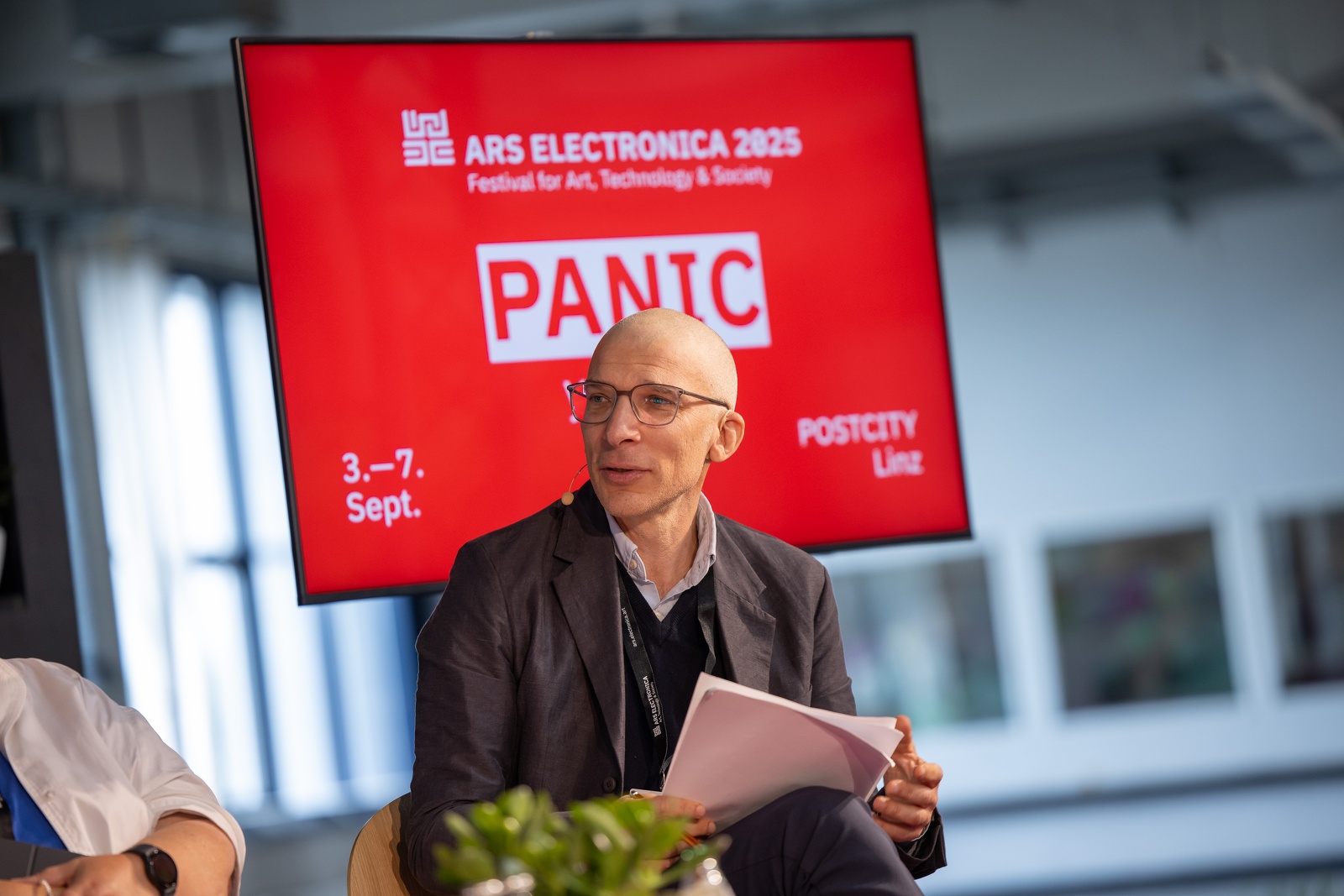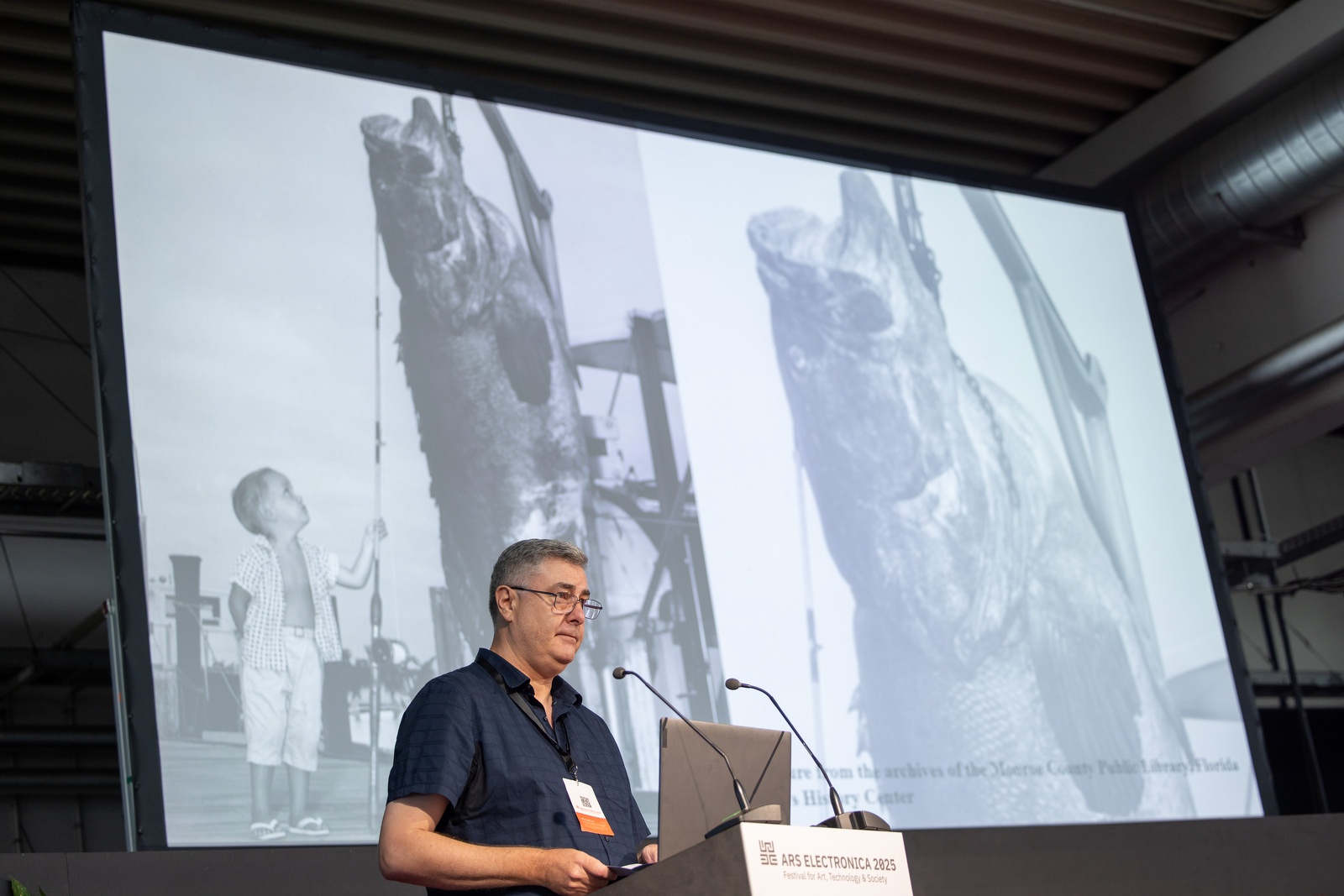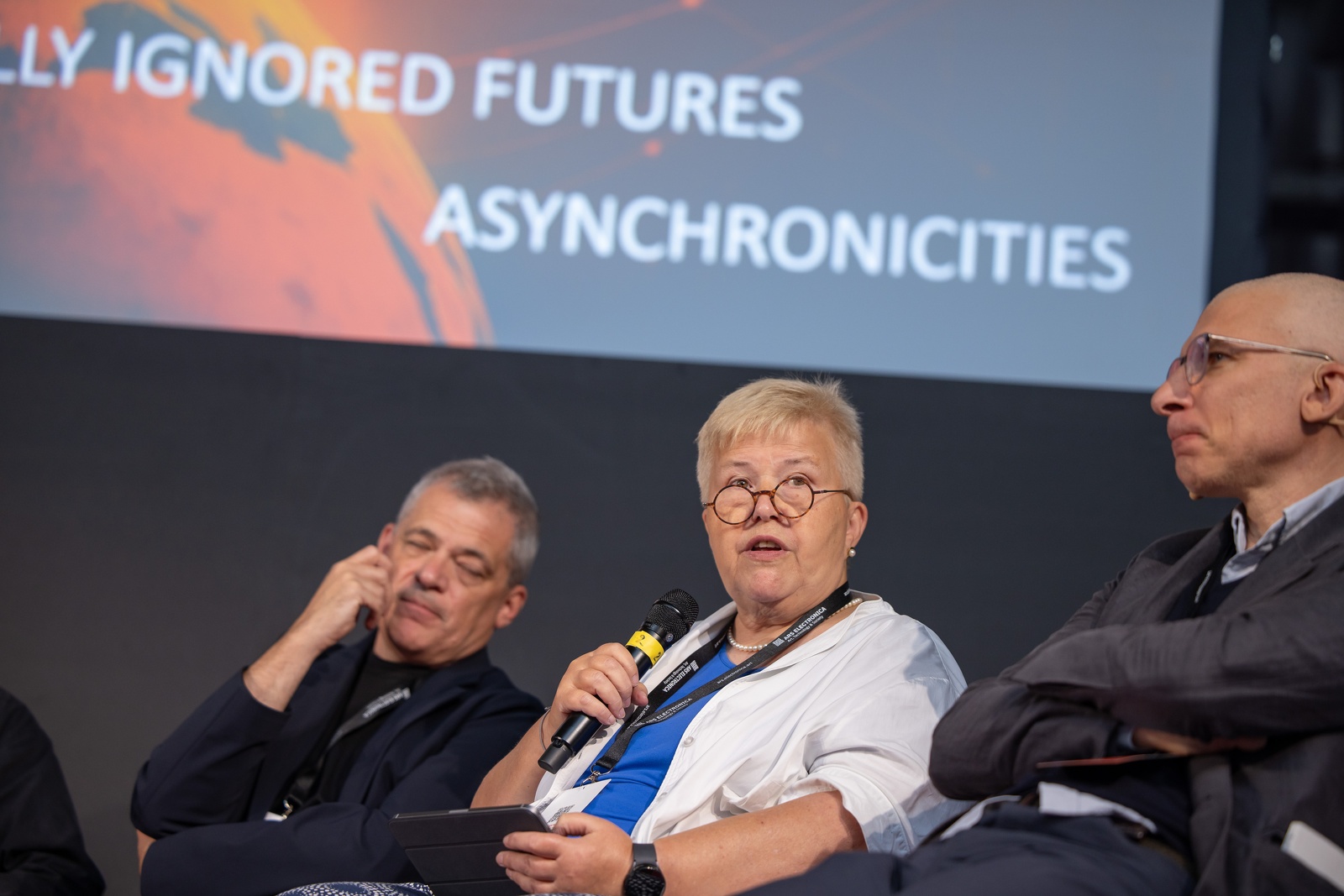“Earth Is a Sensorium” Sparks Interdisciplinary Dialogue at Ars Electronica Festival 2025
The Ars Electronica Festival 2025 in Linz delivered yet another thought-provoking experience with the conference “Earth Is a Sensorium,” a session that explored how our understanding of the world shapes our actions within it. Held under the festival’s overarching theme of “Panic,” the event brought together leading voices from the sciences, humanities, law, and the arts to revisit and reimagine the concept of the Great Acceleration.
Rethinking the Great Acceleration
The session opened with a compelling lecture by Alexander Damianos (GB/GR) that traced the origins of the Great Acceleration – a term coined to describe the exponential rise in human activity and its planetary impact since the mid-20th century. From ocean acidification to GDP growth and the proliferation of fast-food chains, the charts that once illustrated this phenomenon have become cultural artifacts in their own right.
But the panel didn’t stop at extending these charts to the present day. Instead, it asked a deeper question: How have these visualizations influenced scientific institutions, public discourse, and our collective imagination? The conversation challenged attendees to consider not just the data, but the societal frameworks that shape and are shaped by it.
A Sensorium of Perspectives
The panel featured interdisciplinary insights that transformed the session into a living “sensorium” – a space where knowledge, perception, and emotion converged. Speakers; Owen Gaffney (IE/SE), Mark Williams (GB), Armen Avanessian (AT), Ulrike Felt (AT); each tackled the question: “How do the Great Acceleration charts sense and make sense of the world?” Their answers ranged from critiques of data colonialism to poetic reflections on ecological grief.
A Call to Action
“Earth Is a Sensorium” was more than a panel – it was a call to reimagine how we engage with the Earth as a dynamic, interconnected system. By blending data with dialogue, and analysis with art, the session underscored the urgency of updating not just our charts, but our collective consciousness.
As the Anthropocene continues to unfold, events like this remind us that the future of planetary stewardship lies in interdisciplinary collaboration and imaginative thinking. The sensorium is open – what we choose to sense, and how we respond, is up to us.
Studiotopia Collective Event: A World Café of Collaboration
The symposium’s final event – the Studiotopia Collective Event – brought together the artist-scientist duos who had spent months in residency across Europe. Designed as an interactive World Café, the session invited audiences to engage directly with the residents, exploring the diverse modes of art-science collaboration that emerged from the Studiotopia project.
Participants included:
- Julien Fezansis an artist in residency with Hexagone Scène Nationale, focusing on sound engineering, documentary, and theater.
- Justyna Górowskais an artist in residency with Centre for Contemporary Art Laznia, focusing on DNA digital data storage, sustainability, and data preservation.
- Cezar Mocanand Hung Lu Chan are artists in residency with Beta festival.
- Dmitry Morozovis an artist in residency with Kersnikova, focusing on contemporary media art including sound, robotics, and installations.
- Sybille Neumeyeris an artist in residency with Kersnikova, focusing on environmental issues, climate crisis, and ecological relationships.
- John Palmesinois an artist in residency with Ars Electronica, focusing on the Anthropocene.
- Masha Patsyukis an artist in residency with Hexagone Scène Nationale, focusing on film, digital arts, and performance.
- Lea Luka Sikauand Denisa Pubalova are artists in residency with LABoral, focusing on multisensory installations, vibroacoustics, and media art.
- Karolina Sobeckais an artist in residency with Centre for Contemporary Art Laznia, focusing on heat, healing, resistance, and energy flows.
- Fanny Sorianois an artist in residency with Hexagone Scène Nationale, focusing on body, animality, and metamorphosis.
- Miguel Teodorois an artist in residency with CYENS Centre of Excellence, focusing on materiality, geopolitics, and ecology.
- Laure Winantsand Adrien de Lucca are artists in residency with GLUON.
- Alexander Damianosis a scientist in residency with Ars Electronica, focusing on the Anthropocene.
- Marina Dermastiais a scientist in residency with Kersnikova, focusing on cell biology and botany.
- Cailean Finnis a scientist in residency with Beta festival.
- Kalliopi Ioumpais a scientist in residency with Hexagone Scène Nationale, focusing on social cognitive neuroscience, molecular biology, and experimental psychology.
- Ziggy O’Rileyis a scientist in residency with Kersnikova, focusing on human-robot interaction, moral and social cognition, and ethics of emerging technologies.
- Michał Piaseckiand Agnieszka Szostok are scientists in residency with Centre for Contemporary Art Laznia, focusing on heat, healing, resistance, and energy flows.
- Colas Schretter and Louise Delhayeare scientists in residency with GLUON.
The event showcased projects ranging from human-robot interaction and moral cognition to botany, geopolitics, and experimental psychology. It was a celebration of the messy, generative space where disciplines collide – and where new ways of sensing and responding to the world are born.
You can watch the video of the panel bellow.

